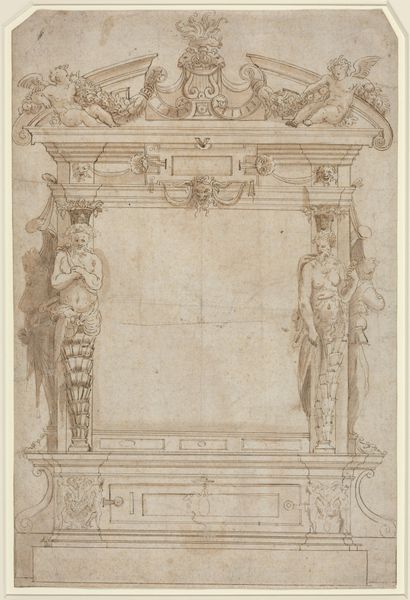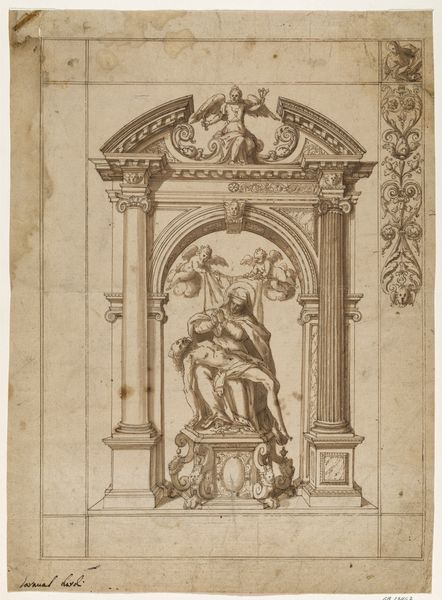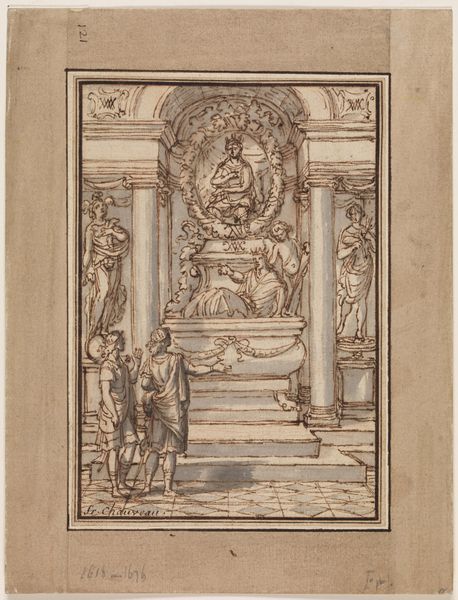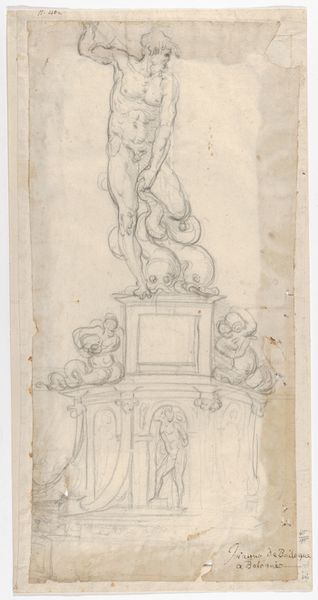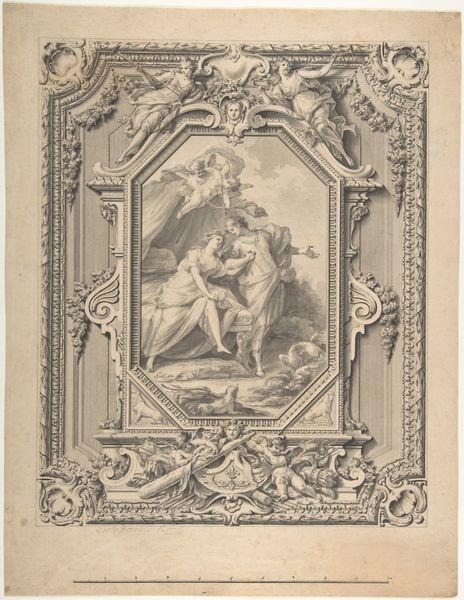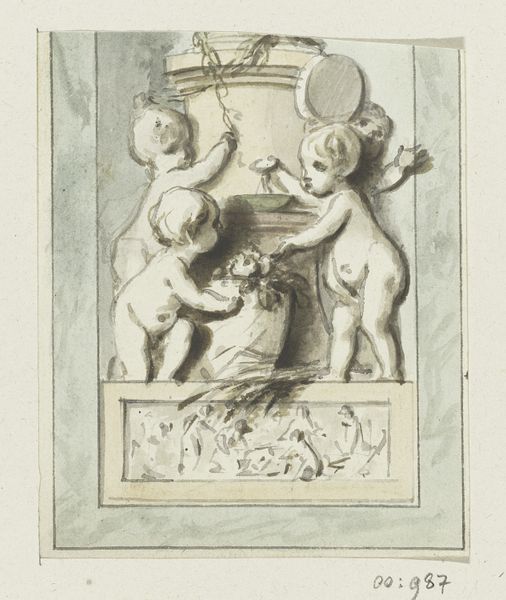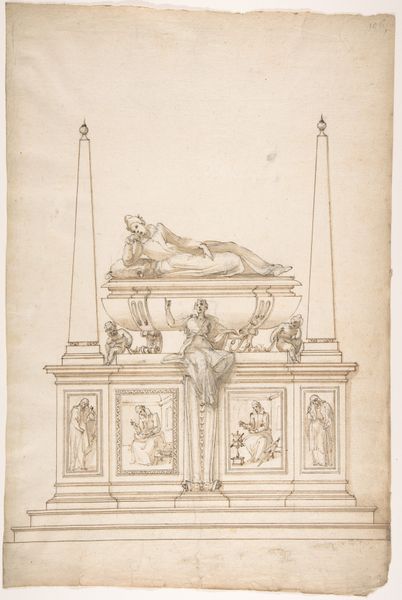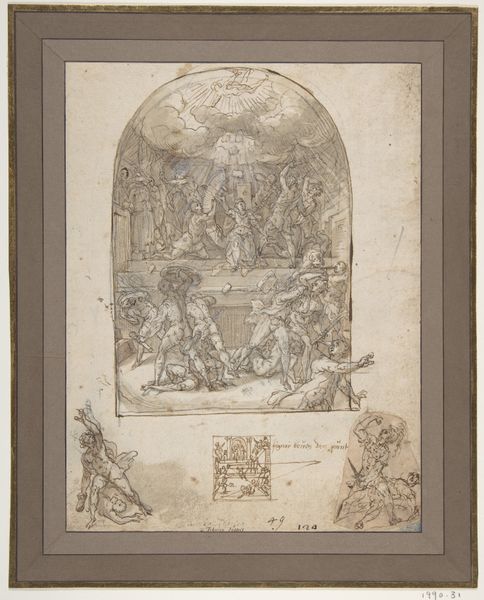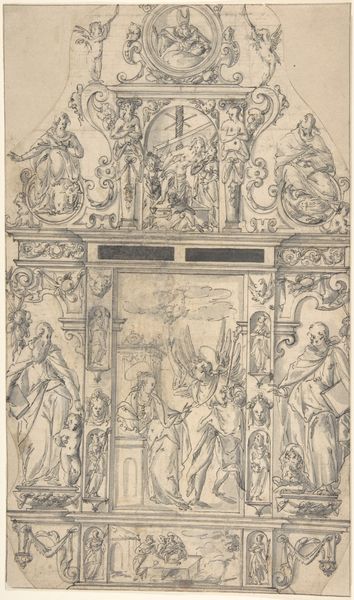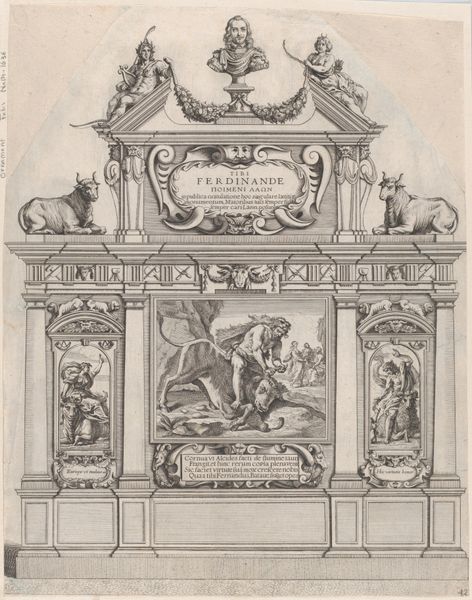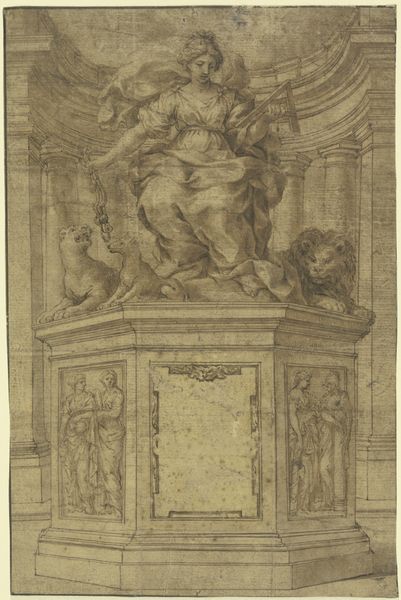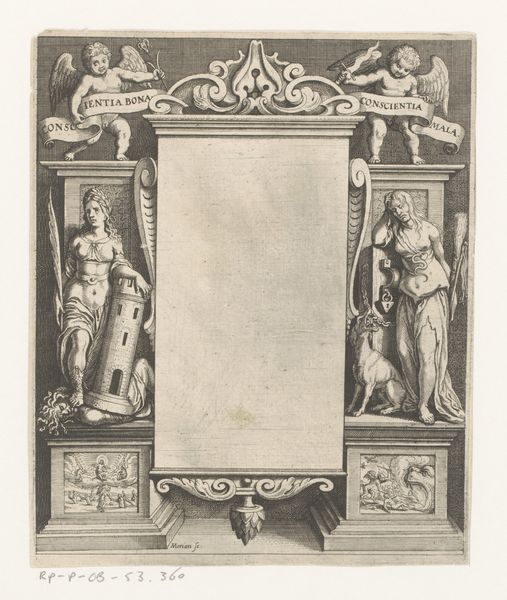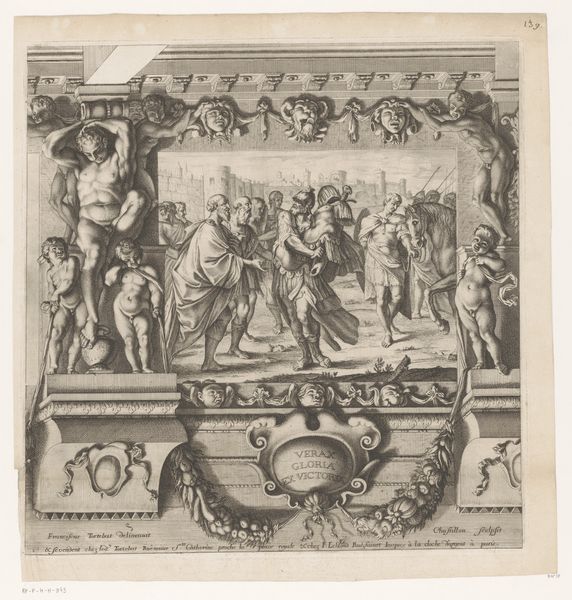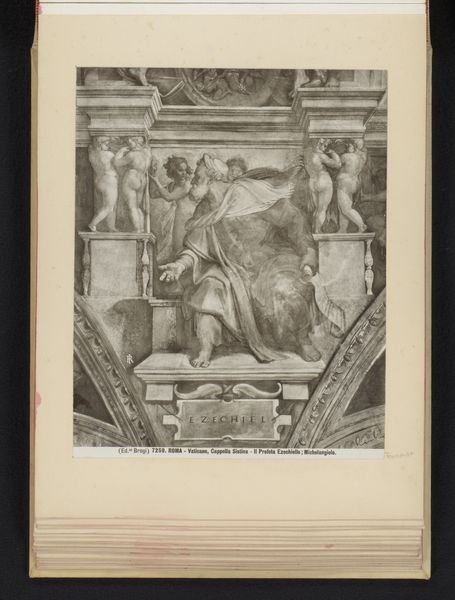
Design for a Sepulchral Monument Divided in Two Parts with Bas Relief Surmounted by Statues and Foliate Decoration Below. 1826
0:00
0:00
drawing, pencil, pen
#
portrait
#
drawing
#
neoclacissism
#
figuration
#
pencil
#
men
#
pen
#
watercolour illustration
#
history-painting
#
academic-art
#
pencil art
Dimensions: sheet: 13 5/16 x 9 9/16 in. (33.8 x 24.3 cm)
Copyright: Public Domain
Guiseppe Colignon drafted this sepia ink design for a sepulchral monument in 1826, amidst the burgeoning Neoclassical movement. The period, marked by political upheaval, also saw the rise of a fascination with antiquity, influencing art and culture. This design offers a window into the era's complex relationship with death and commemoration, reflecting the values and beliefs of early 19th-century society. At the top we can see the representation of a male and female in classical clothing, symbols of status and power. Directly below, the bas relief depicts the deeply personal and emotional experience of mourning. A woman is depicted in distress next to her child while an angel holds a portrait, all of which are traditional portrayals of grief and bereavement. The monument as a whole seeks to immortalize individuals and perhaps families, while underscoring the intersection of class, gender, and power within the Neoclassical aesthetic. Through its classical motifs and emotional depth, the design confronts us with the realities of loss and memory.
Comments
No comments
Be the first to comment and join the conversation on the ultimate creative platform.
